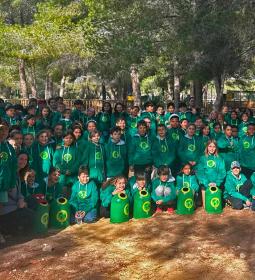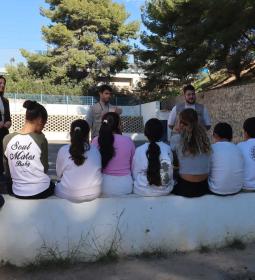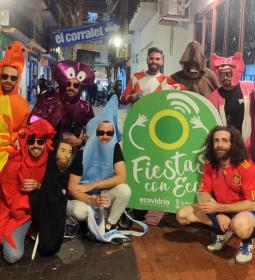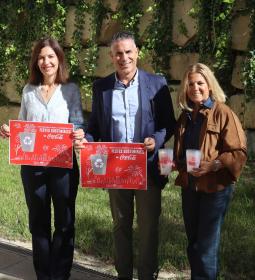308 bars and restaurants have joined the initiative of Ecovidrio and Benidorm City Council
Benidorm joins the campaign for the sustainability of the hotel industry in pursuit of a new Green Flag

The Department of Environment of Benidorm City Council joins the Third Edition of the Green Flags Movement that Ecovidrio, the entity in charge of managing the recycling of glass container waste in Spain, launches to reward the efforts of the establishments and the activism of coastal municipalities for sustainability during the summer, especially about the correct management of their waste.
Councilor Mónica Gómez has encouraged the local hotel industry "to continue with the work of recycling glass and participate in the campaign, as in previous editions". Gómez confirmed that there are 308 establishments in Benidorm that participate in this campaign "which will last until August 31" and stressed that it "includes actions to respond to the notable increase in the generation of glass container waste in coastal areas caused by summer tourism.
Ecovidrio recalls that in summer a third of the glass containers that are put into circulation each year are consumed and 52% of them are generated directly in the hospitality sector, so the involvement of the sector is key to generating a transition towards a more circular and decarbonised model.
This third edition will have the participation of 39 municipalities of the Valencian Community, to which the Benidorm City Council has joined with the registered establishments. The objective recalled the councillor Mónica Gómez is "increase the levels of selective collection of glass containers and mobilize the hospitality sector to achieve a new Green Flag."
At the same time, she recalled that through the Social Networks of the Benidorm City Council "the sector and the population, in general, are encouraged to participate in this competition" and a participation contest is launched that will raffle green mini-igloos from the Eco glass campaign.
One of the highlights of the 2022 edition, Gómez highlighted, is the study of the first Barometer on hospitality sustainability on the coasts of the Valencian Community.
It is, reports Ecovidrio -a non-profit entity that manages the recycling of glass containers- the first field study to find out the level of implementation of the sustainability measures applied by coastal bars and restaurants in the Valencian Community, analyzing the efficient waste management, energy efficiency or responsible consumption. In the context of a climatic emergency, Councilor Mónica Gómez supported it, it will allow an X-ray of the sector in this area and it will be possible to know and share success stories and good practices.
In Benidorm, Gómez pointed out, that with the reactivation of tourism and the end of the pandemic restrictions, the evolution in the selective collection of glass is very positive and "the data confirms that the recovery is evident". This leads us to think, as the councillor pointed out last May, "that it is very likely that the trend will consolidate and we will close 2022 with numbers similar to those we had before the health crisis." Gómez has recalled that "in the first quarter of the year the volume of glass recycling almost tripled that of the same period in 2021 and we see that we are maintaining the trend."
The councillor recalled that "for more than a decade, Benidorm has always been among the municipalities in Spain with the highest volume of glass recycling per inhabitant, far exceeding the national average", something in which, in addition to the awareness itself citizen, the hospitality sector plays a very important role.
Banderas Verdes
Banderas Verdes se consolida como una de las iniciativas clave de la alianza de Ecovidrio con la hostelería.
De hecho, a nivel nacional, esta campaña se desarrolla en 144 municipios costeros, de cinco comunidades autónomas diferentes y cuenta con la participación de casi 15.000 establecimientos hosteleros. Gracias al movimiento Banderas Verdes en 2021 se recogieron 31.045 toneladas de envases de vidrio, en las 127 localidades costeras participantes, cuyo posterior reciclado logró evitar la emisión de 17.700 toneladas de CO2, tales como retirar 8.000 coches de la circulación durante un año.







